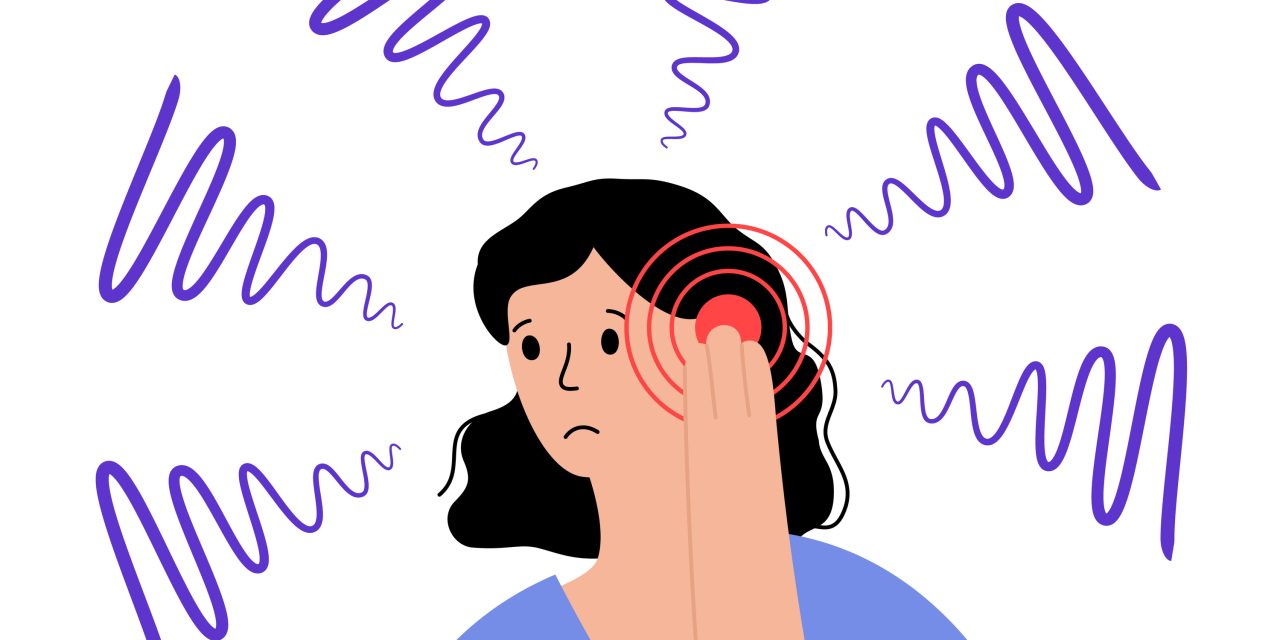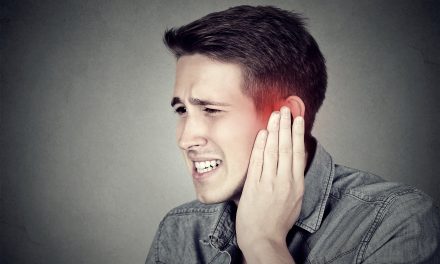Experiencing a constant ringing or buzzing sound in the ears can be both confusing and frustrating. This condition, known as tinnitus, affects millions worldwide.
Tinnitus occurs when you hear sounds like ringing, buzzing, or hissing, that do not come from an external source.
These sounds can vary in volume and may be constant or intermittent.

The causes of tinnitus are varied and range from hearing loss due to aging or exposure to loud noises, to more complex issues like ear infections or blockages.
Understanding the root cause is crucial for effective treatment.
Studies have shown that certain lifestyle choices and health conditions can also contribute to tinnitus.
Living with tinnitus can be challenging, affecting concentration and sleep. However, there are ways to manage the symptoms and improve quality of life.
Treatments range from sound therapy and counseling to medications aimed at reducing the perception of noise.
Awareness and early intervention can play a significant role in managing tinnitus successfully.
Key Takeaways
- Tinnitus is the experience of noise or ringing in the ears without an external source.
- Various factors, including hearing loss and health conditions, can cause tinnitus.
- Treatments and lifestyle changes can help manage tinnitus symptoms.
Understanding Tinnitus
Tinnitus is commonly described as hearing sounds without an external source. It can take many forms, such as ringing, buzzing, and hissing. The experience often varies greatly among individuals, with some noticing subtle noises while others experience significant disturbance.
What Is Tinnitus?
Tinnitus refers to the perception of sound when there is no actual noise present. It is often characterized by ringing in the ears, though the sounds can also include buzzing, roaring, clicking, or hissing.
These perceptions might be constant or intermittent and can vary in volume.
It is crucial to note that tinnitus itself is not a disease but rather a symptom of an underlying issue. Conditions like hearing loss, ear injury, or circulatory system disorders might trigger it.
While some people experience mild annoyance, others may find it disrupts daily life.
Types of Tinnitus
Tinnitus can be classified into two main types: subjective and objective.
Subjective tinnitus is the most common form and refers to sounds only the affected person can hear. This type is often linked to problems in the ear, auditory nerves, or brain.
On the other hand, objective tinnitus is rare and occurs when the noise is audible to both the patient and the physician. This can be caused by muscle spasms, problems with blood vessels, or bone conditions within the ear.
A special type called pulsatile tinnitus aligns with the rhythm of the heartbeat and is often associated with vascular issues.
Symptoms and Sounds
The sounds experienced in tinnitus can vary widely. Common descriptions include ringing, buzzing, hissing, or clicking. Some individuals also report hearing roaring or even music.
These noises may be perceived in one or both ears and can range from a low roar to a high squeal.
Symptoms may also include hearing loss, ear pressure, or increased sensitivity to sound. The severity of these symptoms can impact concentration and sleep.
Regular monitoring and consultation with a healthcare provider can help manage and potentially alleviate the discomfort associated with these symptoms.
Causes and Risk Factors
Tinnitus can stem from various causes and risk factors. Common triggers include loud noises and certain health conditions like Meniere’s disease and high blood pressure.
Common Causes of Tinnitus
Loud noise is a primary cause of tinnitus. Prolonged exposure to high noise levels, such as from concerts or machinery, can damage the delicate structures in the ear. An ear injury can also lead to tinnitus, whether from an accident or sudden loud sound.
Ear infections and blockages can disrupt normal hearing functions, resulting in ringing or buzzing sounds. Conditions like otitis media and ear canal blockage from wax build-up can be responsible.
Temporary tinnitus may arise from medications known to affect inner ear functions. Some antibiotics and diuretics fall under this category. Understanding these causes helps in managing and potentially preventing tinnitus.
Hearing Loss and Tinnitus
Age-related hearing loss is a significant factor in developing tinnitus. As people age, gradual changes in the ear can lead to hearing issues, including persistent ringing. Conditions such as otosclerosis, a bone growth in the ear, can also contribute.
Hearing loss due to health conditions like diabetes or atherosclerosis may link to tinnitus. When the tiny hair cells in the cochlea are damaged, it often results in hearing loss and tinnitus.
Acoustic neuroma, a benign tumor on the cranial nerve, affects hearing and balance, sometimes leading to tinnitus. Addressing hearing loss might help alleviate the accompanying tinnitus symptoms.
Health Conditions and Tinnitus
Certain health issues can trigger or worsen tinnitus. Meniere’s disease, affecting the inner ear, causes vertigo and fluctuating hearing loss, contributing to tinnitus.
Thyroid problems and anemia can also play a role in tinnitus due to their effects on overall health and blood circulation.
High blood pressure and conditions like atherosclerosis may cause changes in blood flow, impacting inner ear health and leading to tinnitus. Head or neck injuries and temporomandibular joint disorder (TMJ) may also result in tinnitus.
Some less common conditions linked to tinnitus include autoimmune disorders and Eustachian tube dysfunction. Identifying the underlying health issue is crucial for effective management of tinnitus symptoms.
Diagnosing Tinnitus
Diagnosing tinnitus involves several steps to determine its cause and impact. Healthcare providers may use a combination of hearing tests and imaging to gather a comprehensive understanding.
Hearing Tests
A critical step in diagnosing tinnitus is conducting a hearing test. Audiologists often use a pure-tone audiometry test to evaluate how well a person hears different pitches. This helps determine if there is hearing loss associated with the tinnitus.
Other tests, like tympanometry, may be used to check the health of the eardrum and middle ear. Speech recognition tests measure how well a person can hear spoken words.
Diagnosing tinnitus often includes observing the patient’s reactions to different sounds.
Imaging and Additional Tests
Imaging tests, like MRI or CT scans, can be crucial for diagnosing tinnitus. These tests help detect any structural issues or abnormalities within the ear or brain that might be causing tinnitus. For example, an MRI can highlight brain tumors or nerve damage.
When tinnitus is suspected to be linked to underlying health issues, blood tests or balance tests might also be conducted.
Healthcare providers may recommend additional examinations to identify any conditions contributing to the tinnitus, such as high blood pressure or other disorders.
By using these methods, professionals aim to rule out more serious conditions, ensuring they provide a targeted treatment approach for those experiencing tinnitus.
Tinnitus Treatments
Tinnitus, a condition characterized by ringing in the ears, has various treatments aimed at reducing its impact. These treatments include conventional approaches, sound therapy, and alternative methods. Each has its own techniques and tools that people find useful.
Conventional Treatments
Conventional treatments for tinnitus often include medications to manage symptoms. While no medication specifically cures tinnitus, some drugs can help reduce discomfort or intensity.
Hearing aids are particularly beneficial for those with hearing loss. By amplifying external sounds, they make tinnitus less noticeable.
Another option is tinnitus retraining therapy (TRT), which combines sound therapy with counseling. TRT helps the brain adapt to the tinnitus sound, making it less bothersome over time. Many find TRT helpful in improving their quality of life.
Sound Therapy and Devices
Sound therapy uses external noises to reduce the perception of tinnitus. Masking devices play various sounds, like white noise, which can cover up tinnitus sounds.
A white noise machine or a tinnitus masker is commonly used. These devices produce a consistent sound that helps drown out the ringing.
For more focused interventions, sound generators may be used. These are often part of hearing aids and provide tailored sound options.
Some researchers are exploring magnetic stimulation to help alter brain activity related to tinnitus, though more studies are needed.
Alternative and Complementary Therapies
Some people use alternative methods to manage tinnitus symptoms. Techniques like relaxation exercises or cognitive behavioral therapy (CBT) can help lower stress and improve coping skills.
Alternative therapies may include acupuncture, though evidence of their effectiveness varies.
Lifestyle changes, such as reducing nicotine intake, can also be beneficial.
Relaxation techniques like yoga or meditation are often recommended as complementary practices. They aim to reduce stress, which can exacerbate tinnitus symptoms. While these therapies don’t eliminate tinnitus, they often improve well-being and reduce its impact.
Impact of Lifestyle and Nutrition
Lifestyle choices, including diet and physical activity, play significant roles in managing tinnitus symptoms. Proper nutrition and regular exercise can affect one’s overall health and may influence tinnitus intensity.
Diet and Tinnitus
Nutrition can potentially affect tinnitus symptoms. Consuming too much caffeine might increase tinnitus perception in some individuals. Similarly, excessive alcohol intake is sometimes linked to heightened tinnitus discomfort. Reducing these substances could potentially ease symptoms.
Antioxidant-rich diets may improve ear health. Foods high in vitamins like A, C, and E might support hearing function.
There’s also evidence that obesity and poor diet could exacerbate tinnitus. Ensuring a balanced, nutritious diet is essential for maintaining health and potentially managing tinnitus severity.
Physical Activity and Stress Reduction
Regular physical activity may help reduce stress and anxiety, which can worsen tinnitus symptoms. Exercise encourages endorphin release, promoting feelings of well-being and reducing stress levels.
This can lead to improvements in symptoms associated with tinnitus, such as anxiety and depression.
Simple movements like walking or yoga might enhance relaxation. Stress reduction strategies could lessen tinnitus perception and improve quality of life.
Addressing stress through exercise or meditation provides a holistic approach to managing tinnitus alongside other lifestyle changes.
Living with Tinnitus
Life with tinnitus involves managing daily challenges while finding ways to improve personal well-being. Effective daily strategies can minimize discomfort and stress, while broader lifestyle choices enhance the overall quality of life.
Daily Management
Daily management of tinnitus requires practical approaches. Utilizing hearing protection like earplugs in noisy environments helps reduce worsening symptoms.
It is important to regularly assess exposure to loud sounds and use ear protection when needed. Managing stress through activities such as yoga or meditation can also be effective in reducing tinnitus intensity.
Staying informed is another key strategy. Education about tinnitus helps individuals understand their condition better.
Using a humidifier can maintain optimal air moisture, which may reduce nasal congestion and ear pressure, potentially easing tinnitus.
Enhancing Quality of Life
Activities that shift focus away from tinnitus can improve quality of life. Engaging in hobbies or interests promotes mental well-being.
Sound therapy, like listening to calming music or nature sounds, can mask the tinnitus noise, providing relief.
Sleep quality is crucial. Blackout curtains might help create a comfortable sleep environment by blocking external noise.
Stress reduction techniques, such as mindfulness or counseling, support emotional balance. Social support from friends and family also plays an essential role in emotional health.
Protecting hearing from further damage is essential.
It’s important to regularly check hearing and commit to using ear protection in suitable situations. This proactive approach not only prevents worsening of symptoms but also contributes to an improved quality of life over time.
Prevention and Awareness
Effective prevention and awareness strategies can substantially reduce the risk of tinnitus. Protecting your hearing and understanding how to mitigate risks are key components in maintaining ear health.
Protecting Your Hearing
Protecting your hearing from loud noise exposure is crucial. Loud environments, like concerts or construction sites, can lead to noise-induced hearing loss.
Earplugs or noise-cancelling headphones act as barriers to protect ears from damage.
Regular hearing check-ups are essential. They help identify any early warning signs of potential hearing loss or tinnitus.
Hearing protection strategies can help prevent damage even if someone is regularly exposed to loud noises, such as a musician or construction worker.
Raising awareness about the effects of ear infections and maintaining ear hygiene also play important roles in prevention efforts.
Understanding and Mitigating Risks
Understanding the risks associated with environmental and health factors is vital.
Traumatic brain injury and certain medications can increase tinnitus risk.
It’s important for individuals to discuss these risks with healthcare providers when considering new medications.
Education on safe listening practices, like using the 60/60 rule for headphone use, is beneficial.
This involves listening at 60% volume for a maximum of 60 minutes.
By increasing awareness and knowledge about these risks, individuals can take proactive steps to mitigate them, decreasing the likelihood of tinnitus development.
Frequently Asked Questions
Tinnitus is a common condition characterized by ringing or buzzing sounds in the ears. Understanding its causes, potential implications, and available treatments can help manage it effectively.
What methods are available for tinnitus treatment?
Treatment for tinnitus often includes sound therapy, cognitive behavioral therapy, and medication to help reduce symptoms.
Some people find relief through the use of hearing aids or noise-masking devices. Dietary changes and stress management can also be beneficial.
Can tinnitus be a sign of a serious condition?
Sometimes, tinnitus indicates underlying health issues, such as ear infections or high blood pressure.
It’s important to consult a healthcare professional if tinnitus occurs suddenly or is accompanied by other symptoms.
What are the common causes of tinnitus in one ear?
Tinnitus in one ear may be caused by earwax buildup, ear infections, or exposure to loud noises.
It can also be due to conditions like Meniere’s disease or an acoustic neuroma, which is a non-cancerous tumor on the nerve.
How can one differentiate between tinnitus and other noises in the ears?
Tinnitus is typically a constant or recurring sound such as ringing, buzzing, or hissing that others cannot hear.
Other noises might stem from temporary conditions, like eustachian tube dysfunction, which usually resolve naturally.
Why does tinnitus suddenly start in one’s ears?
Sudden onset of tinnitus can occur due to factors like exposure to loud noise, head injuries, or infections.
It might also happen after a sudden loss of hearing or as a reaction to certain medications.
What steps can I take to manage or stop my tinnitus?
Managing tinnitus can involve lifestyle changes such as reducing caffeine and alcohol. Using white noise machines and practicing relaxation techniques can also be helpful.
Regular exercise and a healthy diet can also help minimize symptoms. Seeking help from an audiologist or therapist may provide additional strategies.

















